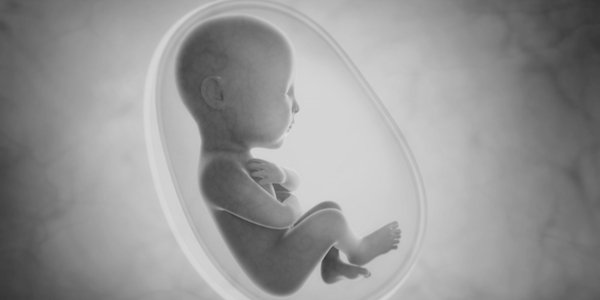IN THE Spectator, Rod Liddle notes the double standards that exist even in the ‘free speech’ movement which, while drawing attention (quite rightly) to ‘transfascism’ – allowing men who identify as women to intrude upon real women’s private facilities – they largely ignore the travesty of British justice represented by the abortion exclusion zones now proliferating across the nation.
He notes that Green MSP Gillian Mackay’s Abortion Services (Safe Access Zones) (Scotland) Bill aims to ban not only ‘people from protesting within 200 metres of an abortion clinic’, but even from praying in their homes if they can be glimpsed from outside because, she insists, ‘This kind of intimidation has no place in a modern or progressive Scotland. Everybody deserves to have access to healthcare without harassment.’ As he remarks, ‘By intimidation she means standing silently, perhaps with a placard, perhaps without.’
He says that in England, ‘the asinine safe zone is admittedly shorter – 150 metres – but the prohibitions are no less severe. Within a “safe access zone”, it’s a criminal offence to intentionally or recklessly influence, obstruct or cause harassment, alarm or distress simply by standing there, by existing’, as seen in the case of 64-year-old retired scientist Livia Tossici-Bolt, ‘who had a placard bearing the incendiary and threatening message: “Here to talk, if you want”.’ He asks: ‘In what possible sense does that meet the criteria outlined above? She was found guilty, however, and copped a two-year conditional discharge with an order to pay £20,000 costs, despite arguing that she was simply ‘there to listen to them. Not that I was there to convince them or change minds or not’.
Liddle argues that ‘governments in Edinburgh and Westminster have got away with such an assault on freedom of speech’ because ‘the anti-abortionists have a deeply unfashionable cause. An appetite for abortions on demand . . . has been a rallying cry of the feminist movement for decades and nobody dare gainsay them’; meanwhile, ‘some of those small silos of protesters who can be relied upon to turn out to demand freedom of speech be observed are not present when it comes to abortion. The Spiked lot, for example, have been marvellously vigilant on the subject of free speech – but the problem is, they also love abortions’.
Similarly, those ‘who have championed freedom of speech when it comes to calling a bloke in a dress a bloke suddenly clam up when the subject turns to abortion. Even the excellent Free Speech Union had, until very recently, done nothing whatsoever about this restriction on what we can say and even what we can visibly think regarding abortion.’ He says ‘the rest of us probably line up behind the likes of that former judge Lord Sumption, who delivered his remarkably inane verdict on the issue last week. Safe access zones were not an infraction of one’s right to free speech, because that freedom could be enjoyed beyond the safe access zone’.
Liddle asks: ‘What possible purpose is there for freedom of speech if that speech is legally denied an audience? And yet there are precious few voices who would dare to challenge this shallow conviction.’ He concludes: ‘If the war against hyperliberal overreach is, at last, beginning to be won, it will be anti-abortion campaigners who will be last in line for the legal redress which they surely deserve.’ (‘When did prayer become protest?’, The Spectator, April 12, 2025).
It is indeed incredible that the speech and even silence which seeks to save lives is treated even more harshly than commentary on all these other issues – but ’twas ever thus. The anti-abortion movement is so ‘unfashionable’ because for years it has been marginalised and censored, beginning in the Labour Party, of which I was a member for many years. I can clearly remember Labour members repeating the saying attributed to Voltaire, ‘I do not agree with what you say, but I will defend to death your right to say it.’
Sadly, however, when push came to shove – and there was a great deal of shoving – no such defence was forthcoming; it was easier to remain silent than to stop others from being silenced. There might just as well be a large warning sign above the abortion issue saying ‘Danger – Keep Out’. People with issues of their own to promote seem instinctively to realise that touching on this one issue would mean being ignored on every other issue.
It should be obvious that harassment of any sort is already illegal, and one does not need to be a specialist on the abortion issue to observe that abortion is not ‘healthcare’; that exclusion zones are not ‘safe’, especially for the babies involved. But saving lives has given way to saving the lifestyles of those who would exclude these unborn babies from the human race.
There is no point in having a point of view that cannot be expressed; free expression is the basis of the democratic system, but if it is now regarded as ‘intimidation’, it is no surprise that so many issues are now ‘off limits’. Spiked can hardly complain about free speech restrictions in other areas when they support the silencing of silent prayer – their approach, like so many others, amounts to ‘free speech for me but not for thee’.
England, seen as the home of free speech, is fast becoming a repressive dictatorship, and there is little chance that pro-life campaigners will get any ‘legal redress’, even if they ‘surely deserve’ it; but most of us would be more than satisfied to achieve legal protection for the most helpless – those who cannot defend themselves.
Rod Liddleis to be congratulated for drawing attention to this elephant in the room: with ‘free speech’ campaigners ignoring the persecution of silent prayer, it will surely trample over everyone’s right to say anything at all – apart, that is, from mouthing pieties approved by wokeists, our new governing class. Welcome to ‘modern’ and ‘progressive’ Britanistan.











